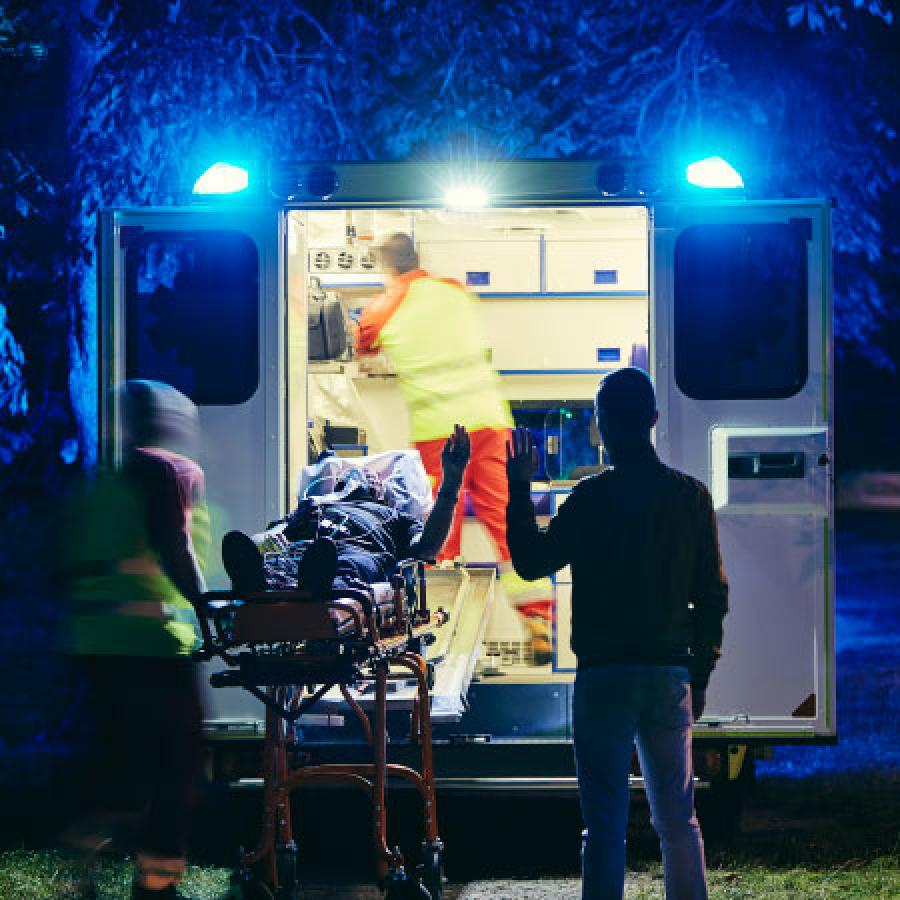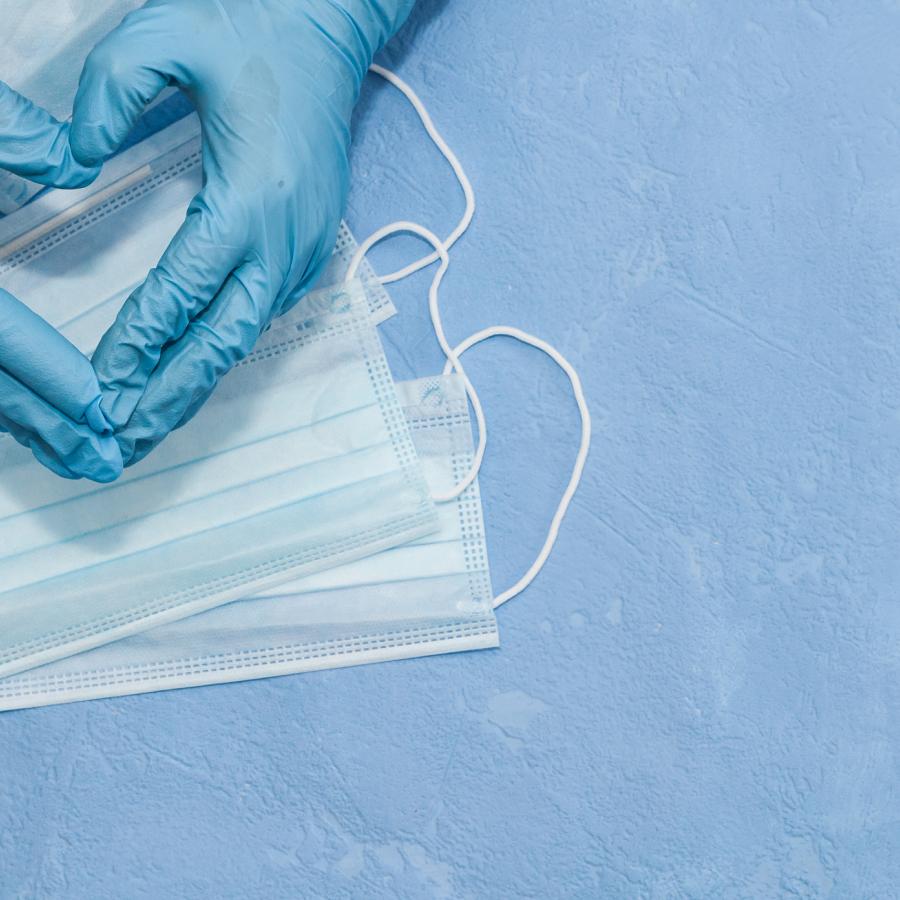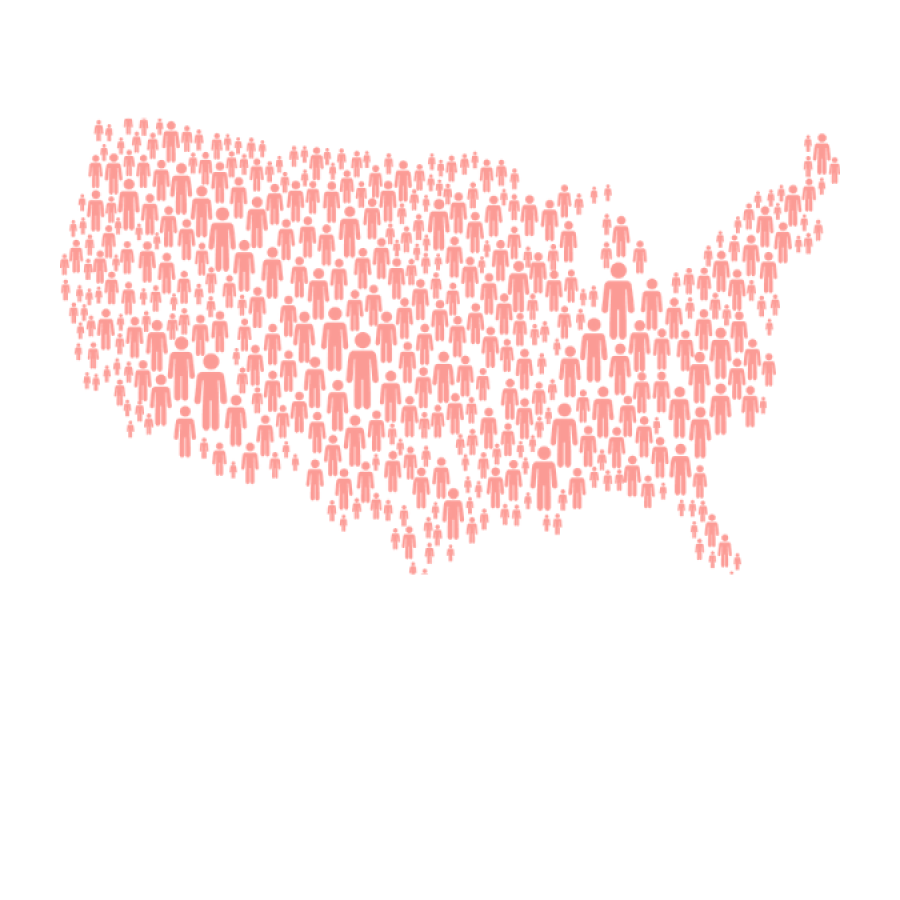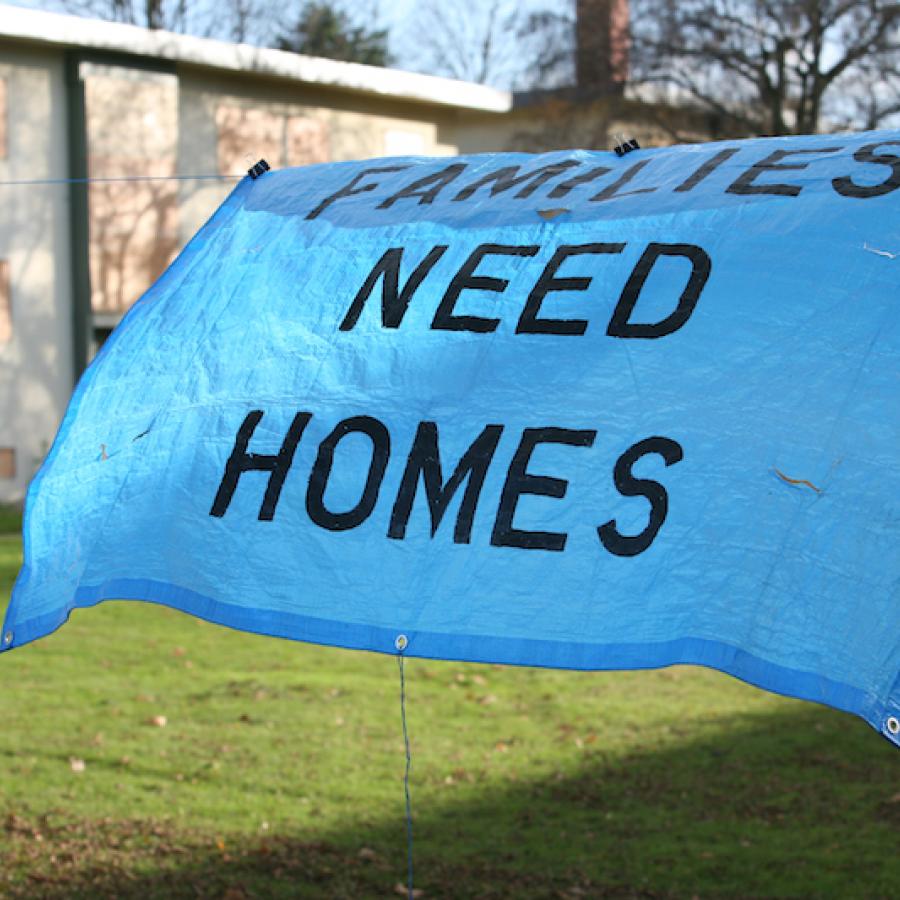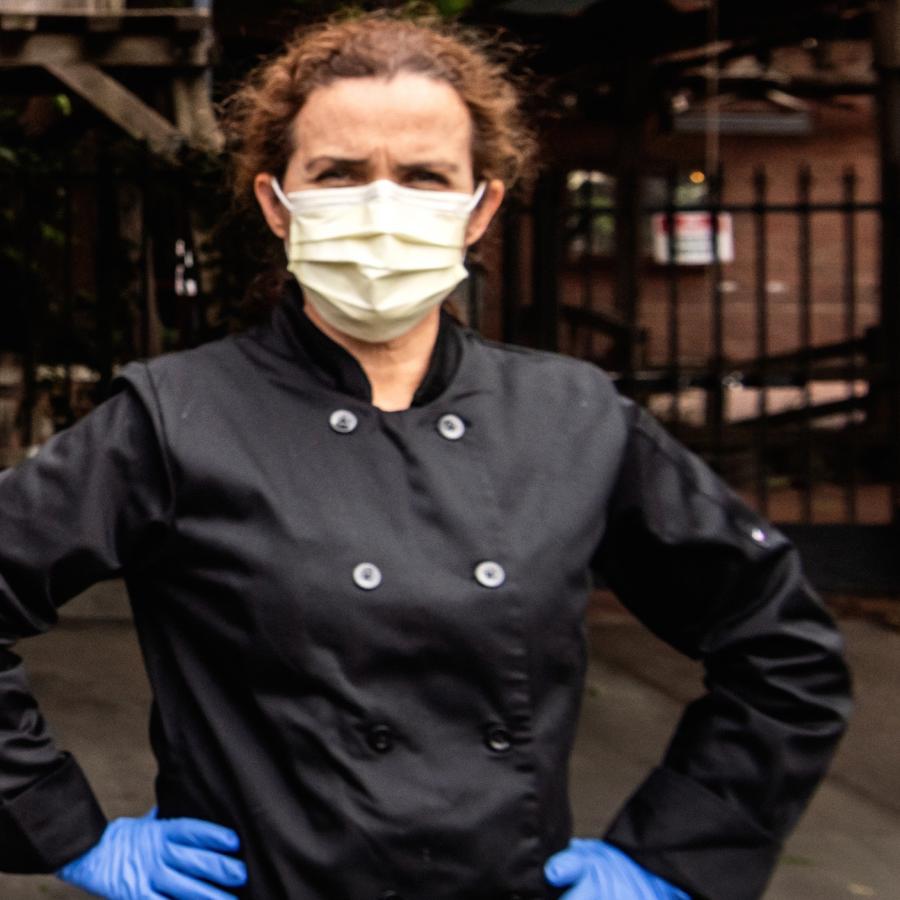This week’s COVID-19 and Race Commentary looks at how policing undermines public health, movement building in a pandemic, and how low-wage essential workers are saving American lives.
Issue No. 6, May 20, 2020
To Protect Public Health, Don’t Police It
By Anand Subramanian and Angela Glover Blackwell
As a public health crisis, COVID-19 must be met with a public health response — one that prioritizes well-being for all and addresses the disproportionate impact in communities of color. But police enforcement of public health guidance, including social distancing and shelter-in-place orders, contravenes its very purpose and exacerbates the way policing already harms people of color through criminalization, harassment, and violence.
These ill-advised enforcement attempts increase the risk that COVID-19 will spread in communities of color. Arresting and jailing people for allegedly violating social-distancing orders intended to protect them exposes them to more danger and is the height of absurdity. Across the country, including in New York and Detroit, officers have been diagnosed with COVID-19 at rates much higher than average, potentially acting as a vector for the disease when they interact with the public.
Our racialized system of policing has led to many high-profile incidents of unnecessary encounters between police and people of color. In New York, an officer used a racial slur and violence when arresting a Black man for allegedly not social distancing; an NYPD photo op that same day told a very different story of an officer cheerfully handing a mask to a White woman. The data bear out the bias in stark terms. Reports indicate that police are arresting and issuing summonses for social-distancing violations to Black and Latinx people in outrageously disproportionate ways in New York and Ohio. In Miami, law enforcement has ramped up arrests of people who are unsheltered at a time when they need more support than ever. Meanwhile, there are numerous, highly publicized examples of White anti-lockdown protesters or park goers who are conveniently overlooked or supported by police.
At a time when it is essential, trust in government is severely diminished when localities employ law enforcement in this reckless manner. Although some cities are now backtracking, more is needed, such as prioritizing community health and economic security instead of police departments in city and county budgets. Many groups across the country have called for more investment in the community through divestment from police departments, including in Los Angeles and in Milwaukee, where the Liberate MKE coalition successfully advocated for a reduction in $900 million from the police department budget that went instead to youth employment, affordable quality housing, and violence prevention without police involvement.
Partner organizations have developed useful resources to help communities advocate to limit policing as part of a COVID-19 response. A new COVID19 and Policing website tracks social- distancing orders and enforcement to help limit the risk for and criminalization of people of color. The Policing During COVID-19 guide offers public health messaging and data for communities to support arguments against utilizing policing in this moment. A new policy platform offers a comprehensive call for an end to surveillance, policing, and militarized responses to COVID-19.
Looking beyond the current crisis, we cannot return to “normal” when it comes to policing. Racially biased law enforcement was an epidemic even before COVID-19. The American Public Health Association’s statement on police violence makes clear that policing worsens health outcomes. The statement also provides context to the challenges inherent in trying to reform policing:
Policing was historically deployed for the social control of communities deemed socially marginal… it evolved from ruling-class efforts to control the immigrant working class in the North and slave patrols in the South. Policies and practices continue to implement and sustain this historical intent.
In other words, policing is oppressive by design and will never keep Black and Brown communities safe.
Informed by decades of working to reform policing to become more transparent, accountable, and community-centered, we must acknowledge this uncomfortable truth and meet the challenge. That is why PolicyLink is working with dozens of organizations across the country — including those led by and representing people directly harmed by the criminal-legal system — to radically imagine and create a people-centered justice system that actually works to keep all communities safe and healthy.
This work includes supporting grassroots campaigns to divest from police and invest in communities of color through intensive regional workshops called Freedom Labs. It also includes helping to lead a new national People’s Coalition for Safety and Freedom to invest billions of dollars into the communities most impacted by policies of mass criminalization and mass incarceration. And the work includes convening advocates from around the country at the first national Building Beyond Policing conference to spark a sustained, long-term movement to dream and build a world that centers healing and well-being instead of surveillance and punishment.
The path will be uphill and difficult, but it is the only one that gets to the root of the issue. Working together, we can and must build truly equitable systems and institutions that work to keep us safe even in the midst of a global pandemic.
Anand Subramanian is a Managing Director at PolicyLink. Angela Glover Blackwell is Founder in Residence at PolicyLink and host of the podcast Radical Imagination.
News, Analysis, and Commentary, Curated From Around the Web
As COVID-19 slams the economy, Black Americans brace for the brunt. “Perennially crushed by lending bias, battered by employment discrimination, and neglected by high interest rates, Black Americans stand poised to be ravaged by the COVID-19 downturn,” Aaron Ross Coleman writes in Vox. History offers little comfort. During the Great Depression, national unemployment reached 24 percent while Black unemployment approached 50 percent. During the Great Recession, when national unemployment was 9 percent, Black unemployment reached 16 percent.
“We expect the gaps caused by the current recession to be the largest on record,” write economists Jared Bernstein and Janelle Jones. Their models show Black unemployment will reach 30 percent and Black underemployment will approach 42 percent. For Latinx workers, the economists forecast 22 percent unemployment and 41 percent underemployment. A Federal Reserve survey finds that 39 percent of US households earning less that $40,000 a year lost a job in March, compared with 13 percent of households earning more than $100,000.
Small businesses owned by people of color are an important source of jobs in low-income communities and communities of color. Yet few Black- and Latinx-owned businesses received aid under the federal Paycheck Protection Program or other emergency programs, finds a survey reported in the New York Times. Nearly half the owners surveyed expect to close permanently within the next six months.
In Detroit, the pandemic is swiftly wiping out middle-wage job growth and an economic recovery that were years in the making. National Geographic takes an in-depth look at the challenges facing the city, which had 10,259 COVID-19 cases and 1,243 deaths as of May 15. Black Detroiters describe the anguish of watching White protesters at the capitol demanding the state reopen for business. A new state task force to try to reduce health disparities is headed by Michigan’s Lt. Governor Garlin Gilchrist, a Black Detroiter who has lost 16 family members to the virus.
To renew devastated communities, the nation must make multiple large-scale investments in people and places, as we did when we created jobs and wealth for Whites after the Great Depression. CityLab traces an investor’s frustrating journey to revitalize one block in Birmingham, Alabama, to examine how policy, financing, and attitudes devalue Black neighborhoods and make it so difficult to obtain the needed investments.
In a video interview, Rev. William Barber speaks with New Yorker Editor David Remnick about the nation’s widening economic divide. Tracey Ross of PolicyLink explains in Essence why for Black people, returning to normal is not good enough. Federal Reserve Chairman Jerome Powell warned on 60 Minutes that the economy may not recover until late 2021 and urged Congress to do much more.
Will COVID-19 push philanthropy to stand up for Black America? Keecha Harris poses the stark question in the Nonprofit Quarterly. “For a field that touts its love of humanity, philanthropy let decades elapse with a conspicuous lack of coordinated, consistent, and focused efforts on America’s race problem.” The sector had a lackluster response to persistent calls to center racial equity in its work. This must change in the face of the pandemic, she writes. “Regardless of whether your funding focuses on science, climate, or technology, racial equity is now undeniably your issue.”
Ben Hecht, president and CEO of Living Cities, writes that the pandemic has helped the whole country see what it took his organization a long time to grasp: structural barriers, created through economic and political choices made since the nation’s founding to advantage Whites and separate them from Blacks, continue patterns that harm our whole society. To move forward the nation must reckon with the long-term effects of racism; invest in high-functioning government; rebuild the economy with and for the new majority; and address power imbalances.
In Philanthropy News Digest, Michele Kumi Baer of Race Forward offers guidance to funders trying to respond to the pandemic in ways that actualize racial equity. A Nonprofit Quarterly webinar on May 21, will explore how nonprofits and social movements are seizing the crisis as an opportunity to build the foundation for a just, inclusive economy.
Latinx people account for an outsized share of the nation’s essential workforce and they are paying a high price in health, the Los Angeles Times reports. They account for roughly 40 percent of California’s population, but 53 percent of confirmed coronavirus infections. Fifteen percent of San Franciscans are Latinx but they make up 43 percent of the city’s COVID-19 cases as of Saturday. A new analysis by PolicyLink, reveals how the Bay Area’s essential workforce is low-income, Latinx, Black, Filipinx, women of color, and immigrants facing economic and social vulnerabilities.
By allowing the rest of America to stay home, the sweat, diligence and courage of these workers are saving lives. Using models, researchers at Drexel University estimate that shutdown orders have saved 232,000 lives nationally, including 6,200 in Philadelphia, 2,300 in Baltimore, 25,000 in New York City, and 40,770 in Dallas, Houston, San Antonio, Austin, and Fort Worth combined. Shutdowns have prevented 2.1 million hospitalizations.
Findings like this make it all the more egregious when companies and governments fail to properly protect or compensate essential workers — and then punish those who speak out. Dozens of sanitation workers in New Orleans went on strike last week, demanding proper safety equipment, hazard pay, and paid sick leave, according to Payday Report. They were fired and replaced by prison labor.
Government leadership can prioritize the health and well-being of the most vulnerable residents. In Los Angeles and Tucson, the mayors created funds to help families and businesses shut out of the CARES Act because of immigrant status. They describe their efforts at a UnidosUS virtual town hall.
But all too often, the pandemic’s threats to the most vulnerable communities are compounded by government or institutional hostility, neglect, incompetence, or all of the above. Federal CARES relief funds may never reach the poorest people who are supposed to get them. Instead, banks may keep the $1,200 payments or turn them over to collection agencies because no rules prohibit banks from using the money to offset debt, The American Prospect reports. Meanwhile, the Federal Trade Commission is trying to stop nursing homes from illegally forcing residents on Medicaid to sign over their CARES Act payments.
Amid appalling evidence that Black and Latinx people are the vast majority of those arrested or cited for social-distancing violations in New York City, a New York Times editorial calls for an end to police enforcement — and for programs that support community members to help the public abide by the rules. Meanwhile, the city’s nightly subway shutdown for cleaning has become a social-distancing nightmare for people experiencing homelessness, The City writes. In the lobby of one facility, men slept in chairs after they were rousted out of the subways, and in the city’s largest shelter, few people had masks. “It’s inhumane,” said an official for the union representing Department of Homeless Services officers.
Ultimately, federal leadership is needed to end the COVID-19 crisis. Writing in the Washington Post, Alex Tabarrok and Puja Ahluwalia Ohlhaver describe a bipartisan plan they say could achieve this by July. It relies on frequent testing, tracing the contacts of people who test positive (and their contacts), and voluntary isolation at home or in hotel rooms, with isolated patients receiving a federal stipend, like jurors, to discourage them from returning to work too soon. The plan also would recognize differences in regional circumstances and loosen restrictions in places where COVID-19 is under control.
With no comprehensive federal plan to address racial disparities and the suffering of communities most affected by COVID-19, organizers and activists are mobilizing to fill the gap. The Movement for Black Lives has issued a COVID-19 platform, demanding decarceration, targeted relief, housing and health care for all, strong voter protections, and the use of emergency powers to protect, not punish, Black people. The Black Response by Color of Change is mobilizing campaigns on worker safety, health insurance coverage for laid-off workers, protections for Black businesses, universal vote by mail, and other issues.
And thanks to unflagging advocacy by PolicyLink and the Water Equity and Climate Resilience Caucus, the HEROES Act proposed by Democrats in Congress includes grants to address the disproportionate impacts of COVID-19 in environmental justice communities, and grants to states and Indian tribes to help struggling households pay water and sewer bills. One in 20 households experienced a water shutoff before the pandemic, leaving them without the crucial ability to wash their hands.
One measure of federal dysfunction and neglect is the fact that Doctors Without Borders, which serves the most distressed places on Earth, has set up temporary operations in the US and sent a team to work with the Navajo Nation.
Communities are also stepping up to care for themselves and each other. National Geographic profiles Indigenous leaders who are harnessing traditional wisdom and practices as tools to help their communities understand and cope with the pandemic. In Norwalk, Connecticut, an NAACP chapter distributed masks to public housing tenants, while a chapter in Long Beach, California, gave away masks donated by a Korean business, the Washington Post reports. On the northside of Minneapolis, the Racial Justice Network spawned a self-funded volunteer effort that hands out hundreds of handmade masks and hand-sanitizer bottles every Saturday. The City describes how residents of Astoria, Queens, in New York City, one of the hardest-hit neighborhoods in the country, formed a mutual aid group that’s helping vast numbers of people to put food on the table.
PolicyLink draws from articles, videos, interviews, and other sources across platforms, as well as from our network of equity leaders and activists, to bring you the latest information about COVID-19 and race. We offer this resource to:
- Provide easy access to information on the dual health and economic crises facing people of color;
- Put and keep racial equity at the center of our collective understanding of the pandemic and the policies needed for relief and recovery; and
- Lift up useful data and insights that can fuel equity advocacy and campaigns.
Please share with your networks and send your ideas and feedback. And follow us on Twitter, LinkedIn, Facebook and Instagram. #COVIDandRace
Michael McAfee and Angela Glover Blackwell are grateful for the contributions of Fran Smith, Milly Hawk Daniel, Rachel Gichinga, Glenda Johnson, Jennifer Pinto, Heather Tamir, Ana Louie, Janet Dickerson, and Mark Jones to produce the COVID-19 & Race commentary.
